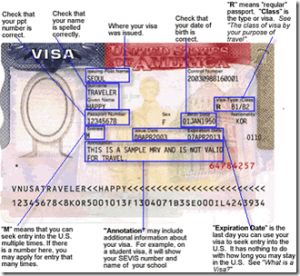Apart from the fact online there is very limited information (especially freely available) about the whole visa process, how much it costs and how you can get one beyond a forum here and there, there is also not much about this topic.
So you have followed your own instincts, other resources or maybe even the information contained in this blog. You now have your H-1B visa or your E-3 Visa and you are soon to board a plane to take you to the US.
Well the first thing is to realise that you will have an experience that will benefit you for the rest of your life and no matter what you may face that may be different from what you are used to, it will be a challenge that will only benefit you.
So there are 2 aspects of society, I will cover briefly in this post today and combined with other posts both already posted and in the future you will get a great insight into the US life in the early days.
1. Social Security Number
This number is the absolute key to you function in the US System. Once you have a Social Security Number, you have it for life so if you have applied and received for a social security number on a prior visa like J-1 visa for Work and Travel or Internship that number still applies.
Many companies and people are under the mistaken illusion that you can’t get paid until you have the Social Security Number but that is NOT entirely true. You must have APPLIED for the Social Security Number at the the very least and your employer can put APPLIED where they would normally write your number on the employer tax forms. Then when you get the number it can be inputted. (this is the Government Social Security Site confirming you do not need a SSN to begin work).
You can apply for your Social Security Number (SSN) a few days after you arrive in the US on a work visa like H1B or E3. The reason why you have to wait a few days is that your arrival needs to be registered in the US System and that can take a few days.
All you need is your Passport with your visa, your I-94 card, filled out application form and letter of employment and you are set. The card will be mailed to usually within 2-8 weeks. You can often go back to the same office a few days later and get your number even if you haven’t got your card.
This number will be used by landlords, phone companies, banks/credit cards, health providers and of course your employer to verify you, check your credit, etc. so do not give this out to anyone as it is the basis of identity fraud in the US.
2. Health Care and Health Insurance in the US
I have a link to my Health 101 post in the US which is a little more detailed than this short synopsis will be. Suffice to say Healthcare and Health Insurance in the US is nothing like anywhere else in the world.
It is extremely expensive, there is virtually no safety net and the entire industry is a for profit venture like any other business. In most parts of the world, you are probably used to a system where your Government covers half, most or all of your health and medication costs. If Private Insurance is part of your system, the monthly costs or premiums while seeming excessive in your own land pales in comparison to the hundreds of dollars a month required here for the basic coverage.
Well chances are your employer either fully or maybe in conjunction with a deduction in your pay check is paying for your Health Insurance. Most coverage comes in 4 parts, being medical, prescription, dental and optical.
The terms you have to become familar with is the US Health system are;
co-pays: Which is a payment made by you as a small contribution for a medical visit (usually $10-$50 depending on your plan). Some plans have no co-pays
Rx: Is the US short hand mean prescription
in-network: Your health insurance provider negotiates rates with providers so they will usually cover 100% of fees if you visit somebody in network. They may only pay 80-90% of costs if you visit some out of network.
Also just as a final point of note US eye doctors and optometrists are not allowed to fill foreign eye prescriptions. You must have a prescription from a US doctor (you can always find places in Chinatown areas that will bend this rule)
I hope this all helped…till next time. 🙂
CJ


